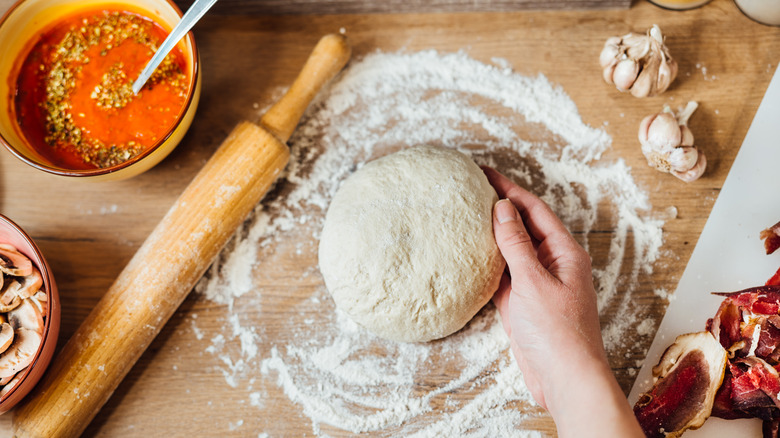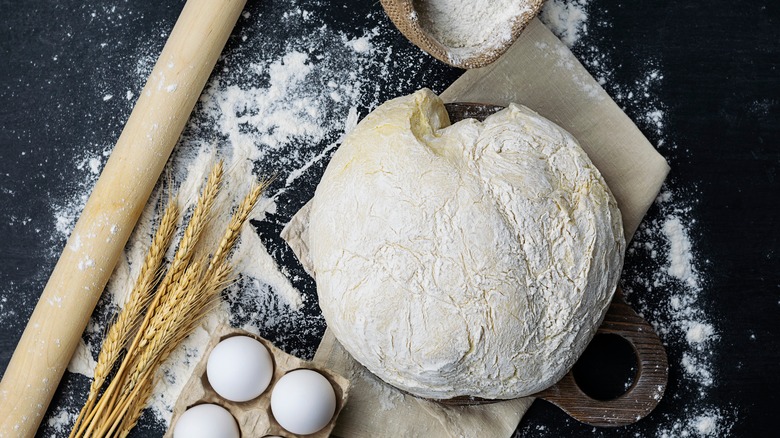What Makes All-Purpose Flour So Versatile?
Sprinkling ghostly white flour across the countertop to knead out dough by hand is an ancient tradition. When we bake, even though we are in the act of creating something new, we are also practicing an old art; something our grandparents and their grandparents' grandparents did. Bread has been and always will be a core part of our survival and our diets. Since humans first cultivated cereal grains, we've made bread, which is to say that we've been relying on it since the dawn of civilization.
But with innovation comes change, and instead of using hand-ground flour, we have several different types of flour lining the shelves at grocery stores across the globe. One of the easiest styles to identify, and the most popular by far, is all-purpose flour. All-purpose flour is made from wheat that has had all of its bran removed and been put through the mill, refining, and bleaching processes (via NDTV Food). Seems pretty basic right? So why do people seem to prefer this flour above all others?
Standards are high
According to Bon Appetit, when the bran is removed from wheat, it's less likely to go bad as quickly — which means that all-purpose flour is the ideal choice for keeping long-term compared to other kinds of flour. And though it has little to no nutritional value after being thoroughly stripped, it is reliably consistent when it comes to baking. We use all-purpose flour for everything from pasta and roux to cakes, muffins, and scones. You can even use all-purpose flour as a base to make cake flour and self-rising flour. That's why we call it all-purpose.
We can use it to make nearly anything because the proteins in all-purpose are steadily between 10% and 12% (via Martha Stewart). The amount of protein in flour directly correlates to how much gluten is formed after the flour is activated. That means because all-purpose flour has a predictable about of protein, and therefore gluten, standardized recipes will have less variability and be more consistent, which is extremely valuable in the baking industry. All-purpose flour's reliability and consistency as well as its light and smooth nature are what make this flour so versatile.

